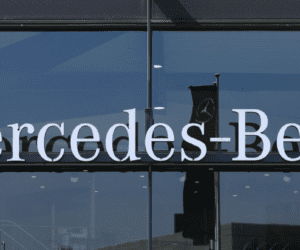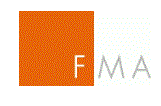By Stephen Rae
IT MAY be August but not as we know it. The month when official Europe traditionally shuts down has been marked by much activity, the bulk of it related to the Commission’s €673BN Covid bailout fund – and how it needs to be policed.
Much of the responsibility for deciding accountability for the funding falls to the German Presidency of the European Council. On the German side vice chancellor and finance minister Olaf Scholz is in charge – a politician already dealing with the seismic fallout from the ignominious collapse of Wirecard and the multitude of questions that surround Germany’s oversight (or lack of) in the debacle.
Scholz and German State Secretary Jorg Kukies are the key personnel negotiating with the European Parliament around passing legislation that will allow the much needed funding to begin flowing.
Here we encounter Problem No.1.
The European Parliament is no longer just the talking shop of years gone by. MEPs are now demanding a bigger role in policing how the €673BN is spent.
If Kukies is feeling the pressure, he isn’t showing it. “I don’t think that’s anything to be overly worried about it and our goal is to find compromises,” he observed. He did not specifically address Parliament’s concerns but predicted a “stronger involvement of the Parliament, of course, gets reflected in different views from the member states.”
A group led by Romanian liberal MEP Dragoș Pîslaru (along with ’s co-rapporteurs Siegfried Mureşan of the European People’s Party and the Socialists & Democrats’ Eider Gardiazabal) are taking charge of the preparing the legislation in Parliament. They are demanding a bigger say in how the billions are spent and policed.
At last month’s EU leaders’ summit, the Member States gave responsibility for policing the recovery fund to deputy finance ministers. That will not be good enough for Parliament and could potentially delay payouts to countries worst affected by the pandemic, including Italy and Spain.
For Pîslaru it is about respecting Parliament’s primacy as he and his two co-rapporteurs unveil the Parliament’s first draft next week. “We have a consensus that Parliament should be involved in the process and we’re going to defend that until the end,” he states.
The same applies to respecting the rule of law, MEP Siefried Mureşan insisted — saying there’s no way countries like Hungary and Poland can bend EU rules to the point of breaking and still expect to get billions in recovery cash. “If you break the rule of law, your funds are being postponed, and you lose them if you really don’t comply with the measures,” Mureşan concludes.
Problem No. 2
Clearly Parliament wants Rule of Law strings attached to the funds. But there are also major concerns that a huge recovery package of €673BN could be siphoned off by organised criminal organisations such as the mafia and corrupt politicians.
In June Didier Reynders, the European Justice Commissioner predicted the fund would be the target of fraud by serious and organised criminals.
He told the European Parliament’s Budget Committee the “economic stimuli such as those proposed are likely to be targeted by criminals seeking to defraud public funding.”
The risk of the Euro budget funds falling into criminal hands made the establishment of the European Public Prosecutor’s Office (EPPO) more essential than ever the Commissioner said. Reynders also pointed to Europol figures that showed that “98.9pc of estimated criminal profits are not confiscated and remain at the disposal of criminals.”
“To effectively disrupt and deter criminals involved in serious and organised crimes we need to have the EPPO in place more than ever,” he told MEPs.
Separately the European Commission is considering establishing an agency to tackle money laundering.
As we know Valdis Dombrovskis, the Commission’s Economy Executive Vice President (EVP), is consulting EU members about setting up a new supervisory body to oversee the anti-money laundering (AML) fight or hand the additional powers to the European Banking Authority.
The Commission wants sweeping new regulatory power to address the differing practices of Members States, including a reluctance by some countries to implement AML directives down the years.
Early 2021 the Commission will also set out the ways it wants to enhance information-sharing between different member states’ financial intelligence authorities.
“If we want to be more effective, we need to do this at EU level,” Mr Dombrovskis told the Financial Times. “Sometimes . . . issues were falling between two national authorities and none of the national authorities were really taking charge,” he said.
As if to highlight the urgency of reform at a Brussels level, all financial crime eyes were on Bulgaria this month after astounding claims from a former justice minister. Bulgarians took to the streets calling for the resignation of Prime Minister Boyko Borissov and his government as former Minister of Justice, Hristo Ivanov slammed the EU for their role in financing the nation and their lack of supervision in judicial reforms in the Balkan state.
Ivanov alleges that there is widespread corruption and influence of oligarchs into political, financial and judicial affairs in the country, and that the EU has “wilfully closed its eyes to what’s happening in Bulgaria” in exchange for unwavering support from the Bulgarian government.
Clearly the Commission needs to act swiftly to ensure the proper governance and accountability is in place for such a massive European relief fund.
Problem No.3
Dealing with the European Parliament is a full time job but German duo Scholz and Kukies are also handling the fallout from Wirecard’s €1.9BN accounting scandal.
For Scholz the scandal which is a national embarrassment for Germany, could also derail his plans to replace Angela Merkel. On Monday his party, the Social Democrats, chose him as their candidate for chancellor in next year’s Bundestag election.
But the Wirecard scandal has revealed massive flaws in Germany’s system of financial regulation – and all the agencies policing (or not) Wirecard failed. Moreover they all ultimately reported to Scholz’s ministry.
“Ultimately the buck stops with the finance minister,” says Frank Schäffler, an MP for the opposition Free Democrats. There is no doubt the revelations come at a particularly sensitive time for him as he now also oversees negotiations with demanding MEPs.
As finance minister, Scholz oversees both the financial market watchdog BaFin and the Financial Intelligence Unit, Germany’s main agency for fighting money-laundering and terrorist financing.
Both have been faulted for failing to supervise Wirecard adequately. Indeed BaFin has been sharply criticised for responding to reports in the Financial Times last year about accounting irregularities at the payments processor by filing a criminal complaint against the newspaper’s journalists!
It also emerged last week that BaFin employees had been trading Wirecard shares in ever higher volumes as it edged towards collapse — and that the FIU had received about 1,000 reports of suspicious activity relating to Wirecard since 2017, mainly from banks — but had passed on just a handful of these to police and prosecutors.
“A potential vulnerability for Scholz is if there is more evidence of money-laundering [by Wirecard],” said Fabio De Masi, an MP for the leftwing Die Linke. “Then the question will be why didn’t the FIU intervene earlier? And the FIU answers to the finance ministry.”
Mr Scholz has responded by placing the blame elsewhere, principally with EY, the accounting firm, which issued unqualified audits of Wirecard for a decade. “It’s unbelievable that auditors, the ones who check [company] accounts in the first instance in our system, didn’t discover such manipulation, despite high fees, an incredible number of employees and in full knowledge of the press reports,” he told Der Spiegel this month.
He has also defended BaFin, dismissing suggestions it could have intervened earlier in the scandal. BaFin lacked the powers under German law to conduct the kind of forensic audit that was ultimately carried out by KPMG at the behest of the Wirecard board, he claimed. In its highly critical report from April, KPMG said it was unable to resolve questions about the payments group’s accounting.
What is now clear is that European leaders did well to agree a €673BN bailout fund for Member States hurt by the Covid-19 pandemic.
However, what is less clear is that the EU is able to properly police the allocation of such massive amounts of money and prevent it falling into the hands of organised criminal gangs and corrupt politicians.
Has the German Presidency, already dealing with the Wirecard scandal, the bandwidth to learn from the collapse and demand stringent policing of the grants and loans?
Will the European Commission respond in time with a new (standalone or not) AML agency?
All big questions and time is not on our side.
Share this on:
Follow us on:








